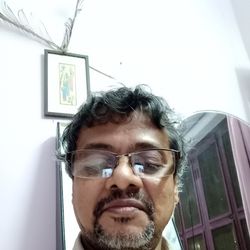


In the last century, astrophysicists were unanimous on the notion that the universe originated from the Big Bang or loud bang. It was so small, hot, and compressed that matter and time did not exist at that time. Many objects were scattered as a result of the explosion. Along with this, time, space, and speed were derived.
Knowing a very minute part of the universe even from the first second is like turning a tape upside down. In her book 'Before the Big Bang: The Origin of the Universe and What Lies Beyond' quantum cosmologist Laura Marcini-Houghton focuses on the earlier episodes of the concept of a galaxy that preceded the explosion. What was that event, due to which there is no physical evidence in this regard for the Big Bang incident?
It is the same as investigating a murder before it occurs* but somehow it is still possible to find answers to this question in the field of theoretical physics. Theoretical physicists take different approaches to solving problems. Laura puts forward a very old adage that a physicist is happiest when he identifies new questions rather than new solutions. Laura has also raised new questions, which are still unanswered. This also means that there is still a great discovery left.
Professor Loss at the University of North Carolina at Chapel-Hill believes that you don't need expensive equipment to reach theoretical conclusions. Sitting in a coffee shop and looking carefully at your notebook, new ideas can come to your mind.
She herself admits that her first idea about the origin of the universe came from this place. Quantum processes can be used to find out how light and matter behave on subatomic particles. She feels that our universe appears to be expanding like a 'wave function'.
His theory allows the fact that as long as there is enough energy to spread around, it is possible to create new universes regularly. Laura Marconi - Houghton's childhood has been ups and downs. He was born in Albania, a country located in northeastern Europe. Incidentally, in 1992 a British economist came to Albania on a mission.
The lines of luck were written for America. She went to America with him. Laura has evidence to substantiate her assumptions or to show how she came to her persuasive conclusion. She seriously admits that her multiple theory is not for everyone. At one point she recalls that only half of her colleagues agree on the expansion theory of possible universes.
In other words, these are called 'parallel universes' or 'alternate universes'. The uncertainty is how energy in cosmology, in general, dissipates as a mechanical force. Although it is very difficult to understand this theory, a young girl has changed our perceptions of space and time. Sometimes out-of-the-box things remarkable happen.


